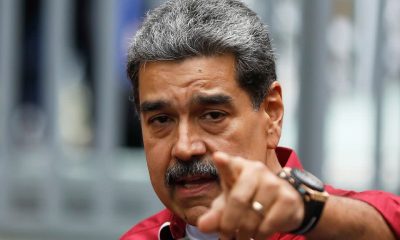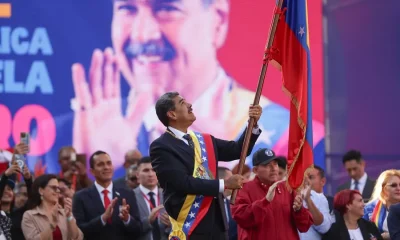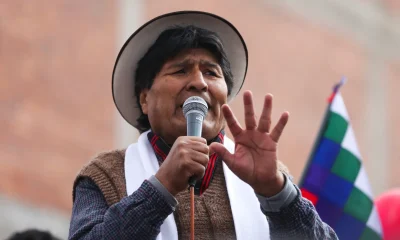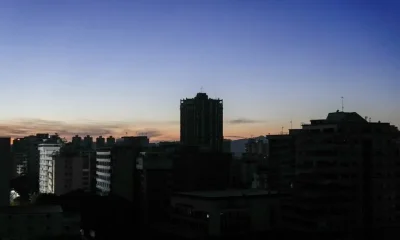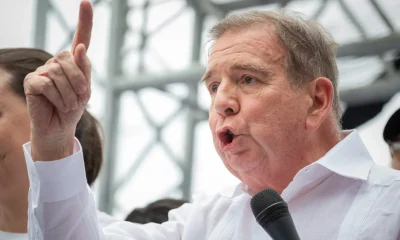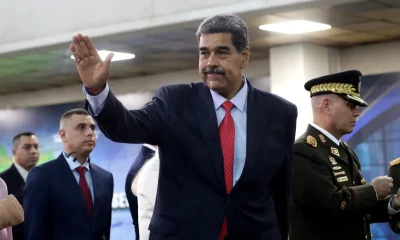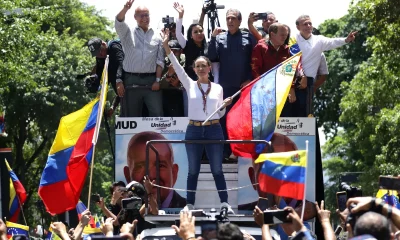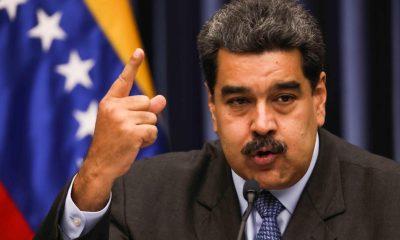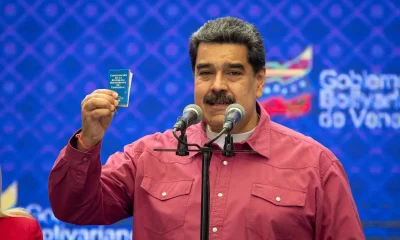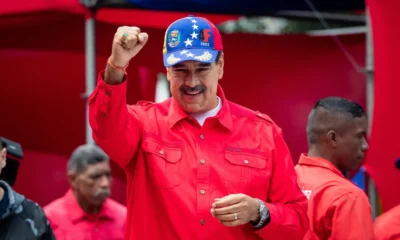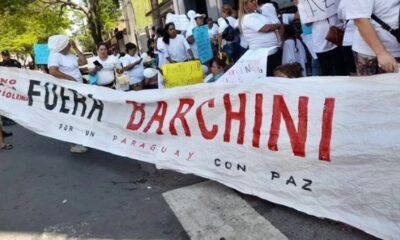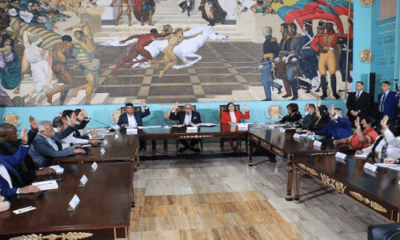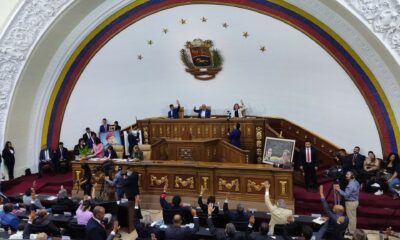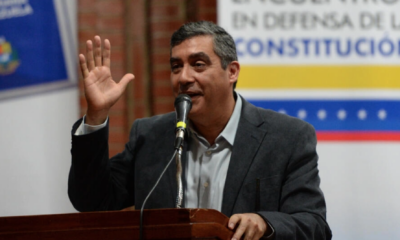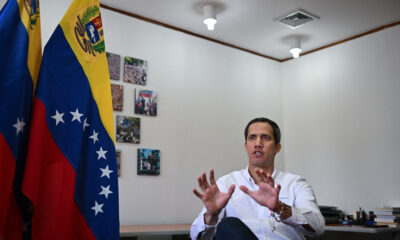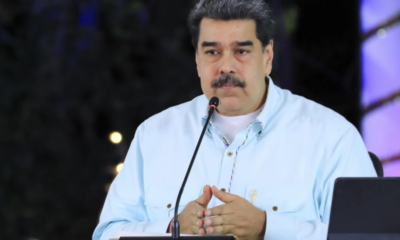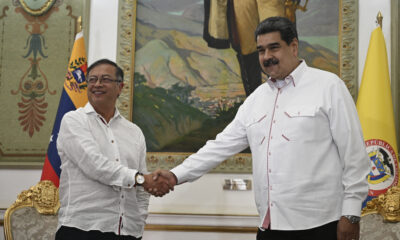International
Prosecution issues third subpoena to opposition candidate; arrest warrant threatened
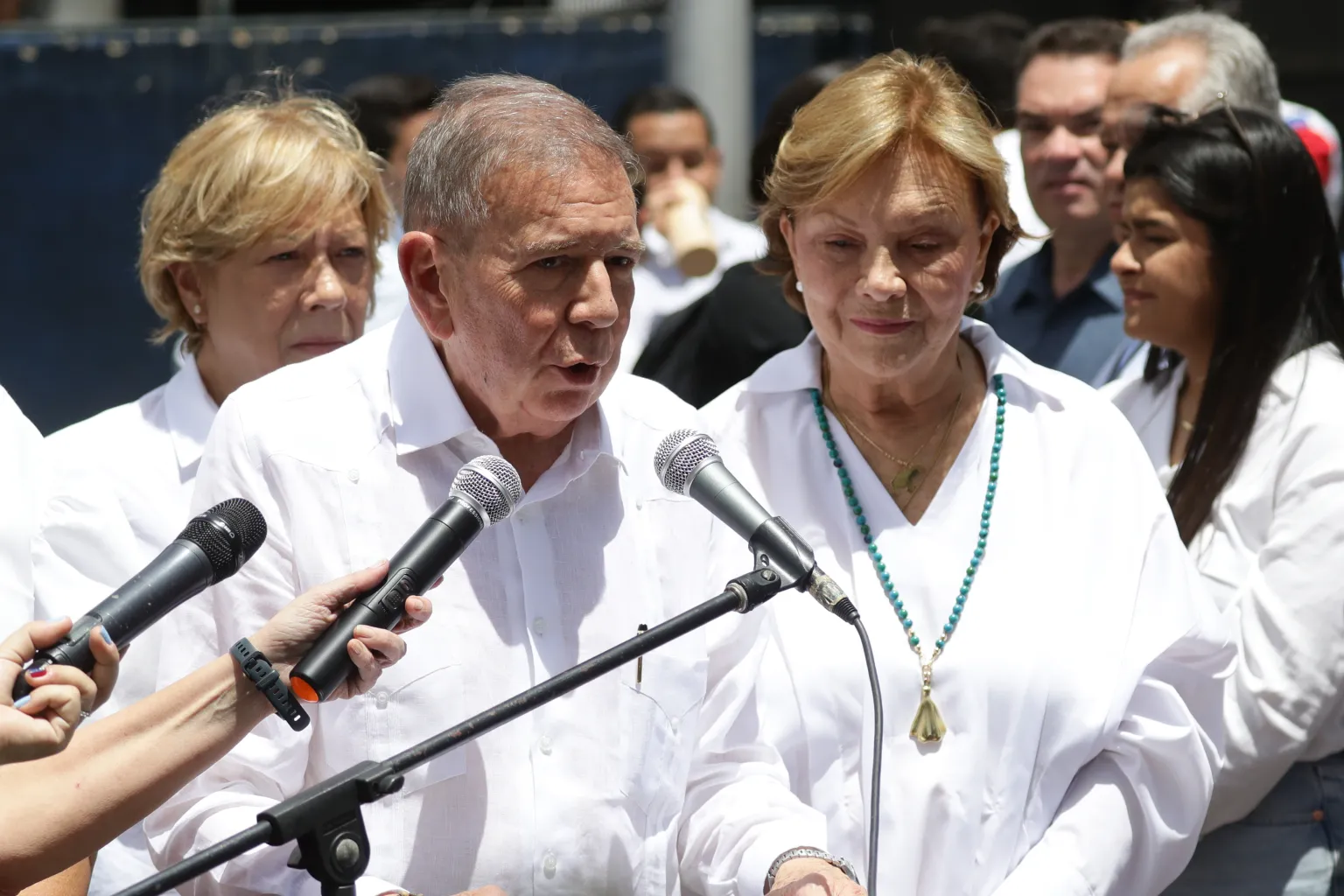
This is the third subpoena issued by the prosecution this week. The previous two were ignored by the rival candidate in the presidential elections against Nicolás Maduro, who views the office as a “political accuser” aiming to subject him to a process “without guarantees of independence and due process.”
The subpoena warns, “Should you fail to appear before this office on the indicated date,” it will be considered as evidence of “flight risk” and “obstruction risk,” leading to the issuance of an arrest warrant.
González Urrutia, who turns 75 today, has been in hiding since July 30, when he was last seen in public. Since then, he has only communicated via social media.
Like the previous subpoenas, this one does not specify whether González Urrutia is being called as a defendant, witness, or expert, according to Venezuelan law.
It mentions “providing an interview regarding the events under investigation” related to the alleged crimes of “usurpation of functions” and “forgery of public documents,” which could theoretically carry a maximum sentence of 30 years in prison.
The subpoena focuses on the website where opposition leader María Corina Machado published copies of over 80% of the voting records, claiming they prove González’s victory on July 28 and expose Maduro’s fraud.
The documents were dismissed by the Chavismo government, and the Supreme Court ordered an investigation after validating the official results from the National Electoral Council (CNE), which declared Maduro the winner with 52% of the votes.
On Thursday, González Urrutia is participating via videoconference in a meeting of EU foreign ministers to present an overview of the situation in his country.
“The situation in Venezuela is critical. That is why I have invited the candidate who has presented results showing that [President Nicolás] Maduro did not win this election,” said Borrell upon arriving at the meeting.
“Repression continues in Venezuela. Members of the opposition teams have been arrested and disappeared. We are very concerned about the situation of opposition leaders,” added the head of European diplomacy.
International
Police investigate deaths of Rob Reiner and wife as apparent homicide
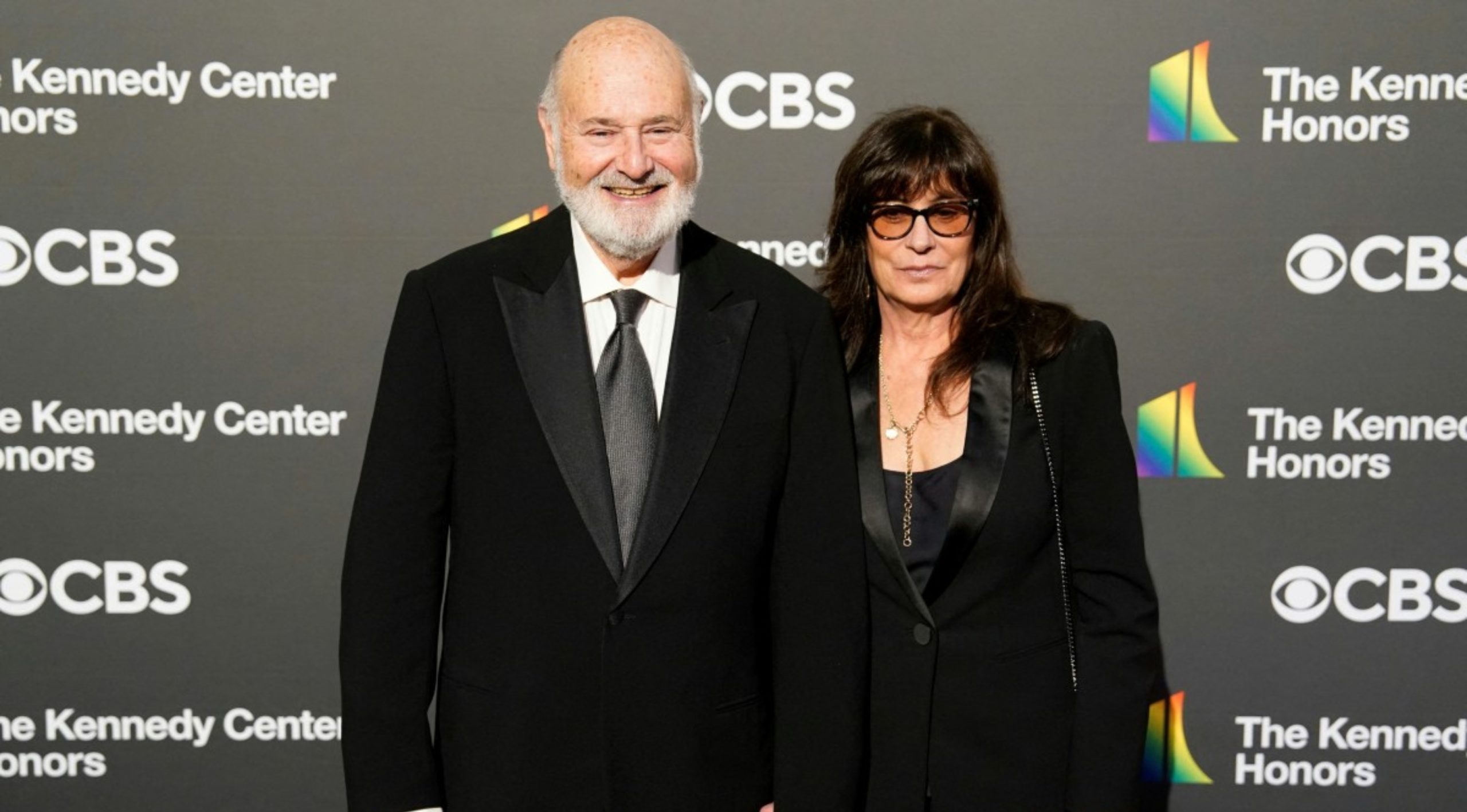
The Los Angeles Police Department (LAPD) is investigating the deaths of Hollywood actor and filmmaker Rob Reinerand his wife as an “apparent homicide,” amid a wave of tributes to the director of classics such as When Harry Met Sally.
According to U.S. media reports on Sunday, Rob Reiner and Michele Singer Reiner were found dead at their Los Angeles mansion with what appeared to be stab wounds.
Several political figures shared messages of condolence following the reported deaths of the director of A Few Good Menand his wife.
While the LAPD did not officially confirm the identities of the victims, it stated that homicide detectives were dispatched to the Reiner residence.
“At this time, no additional details are available and the investigation into an apparent homicide is ongoing,” the Los Angeles Police Department said in a statement posted on social media.
LAPD Deputy Chief Alan Hamilton told reporters that no arrests have been made and that no individuals are currently being questioned as suspects.
“I’m not going to confirm whether anyone is being questioned at this moment or not. We are going to try to speak with as many family members as we can,” Hamilton said.
CNN reported that a family spokesperson confirmed the deaths of Reiner and his wife.
California Governor Gavin Newsom, former U.S. President Barack Obama, and former Vice President Kamala Harrisissued statements expressing their condolences.
International
U.S. and Mexico Reach Deal to Address Water Deficit Under 1944 Treaty
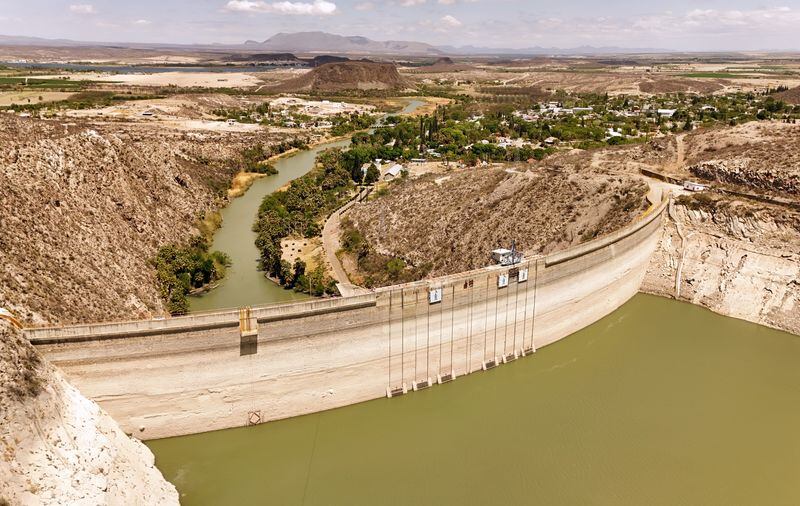
The United States and Mexico have reached an agreement to comply with current water obligations affecting U.S. farmers and ranchers and for Mexico to cover its water deficit to Texas under the 1944 Water Treaty, the U.S. Department of Agriculture said in a statement.
The department уточified that the agreement applies to both the current cycle and the water deficit from the previous cycle.
On Monday, U.S. President Donald Trump accused Mexico of failing to comply with the water-sharing treaty between the two countries, which requires the United States to deliver 1.85 billion cubic meters of water from the Colorado River, while Mexico must supply 432 million cubic meters from the Rio Grande.
Mexico is behind on its commitments. According to Washington, the country has accumulated a deficit of more than one billion cubic meters of water over the past five years.
“This violation is severely harming our beautiful crops and our livestock in Texas,” Trump wrote on Monday.
The Department of Agriculture said on Friday that Mexico had agreed to supply 250 million cubic meters of water starting next week and to work toward closing the shortfall.
Agriculture Secretary Brooke Rollins, quoted in the statement, said Mexico delivered more water in a single year than it had over the previous four years combined.
Trump has said that if Mexico continues to fall short of its obligations, the United States reserves the right to impose 5% tariffs on imported Mexican products.
Mexico’s Deputy Foreign Minister for North America, Roberto Velasco, said that a severe drought in 2022 and 2023prevented the country from meeting its commitments.
International
Several people shot in attack on Brown University campus
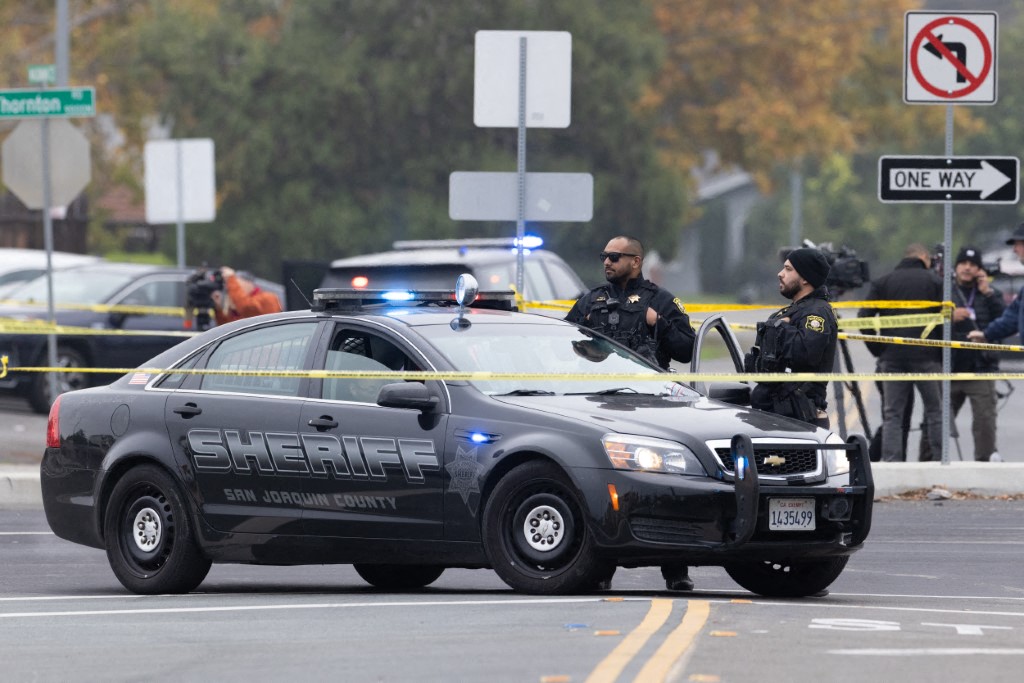
Several people were shot on Saturday in an attack on the campus of Brown University, in the northeastern United States, local police reported.
“Shelter in place and avoid the area until further notice,” the Providence Police Department urged in a post on X. Brown University is located in Providence, the capital of the state of Rhode Island.
U.S. President Donald Trump said on his social media platform Truth Social that he had been briefed on the situation and that the FBI was on the scene.
At 5:52 p.m. local time (11:52 p.m. GMT), Brown University said the situation was still “ongoing” and instructed students to remain sheltered until further notice.
After initially stating that the suspect had been taken into custody, Trump later posted a second message clarifying that local police had walked back that information. “The suspect has NOT been apprehended,” the U.S. president said.
-

 International4 days ago
International4 days agoWashington declares State of Emergency as atmospheric river brings severe flooding
-

 International4 days ago
International4 days agoU.S. to require five-year social media history from tourists under Visa Waiver Program
-

 Central America3 days ago
Central America3 days agoHonduras election crisis deepens as CNE president denounces intimidation attempts
-

 International3 days ago
International3 days agoCuba battles out-of-control dengue and chikungunya epidemic as death toll rises to 44
-

 Central America4 days ago
Central America4 days agoOAS and EU urge honduran political actors to respect vote results and avoid unrest
-

 International3 days ago
International3 days agoColombia says it would not reject Maduro asylum request as regional tensions escalate
-

 International2 days ago
International2 days agoSeveral people shot in attack on Brown University campus
-

 International3 days ago
International3 days agoEcuador on track for record violence as homicides hit highest level in Latin America again
-

 International4 days ago
International4 days agoSix ecuadorian soldiers jailed pending trial for alleged extrajudicial execution
-

 International2 days ago
International2 days agoU.S. and Mexico Reach Deal to Address Water Deficit Under 1944 Treaty
-

 Central America16 hours ago
Central America16 hours agoPanama seizes over three tons of drugs hidden in Caribbean port container
-

 International4 hours ago
International4 hours agoPolice investigate deaths of Rob Reiner and wife as apparent homicide
-

 Central America4 hours ago
Central America4 hours agoOAS urges swift recount in Honduras as election results remain uncertain

























